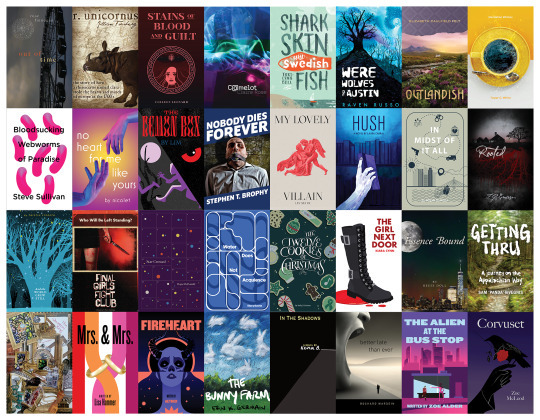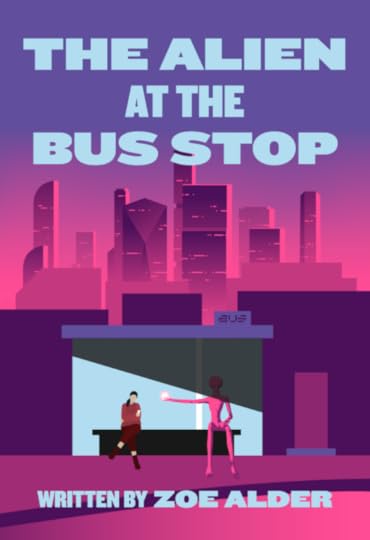Chris Baty's Blog, page 14
December 15, 2022
3 Things NaNoWriMo Taught Me That I Didn’t Learn In College

NaNoWriMo can teach you a lot about writing, especially if you’re not used to writing novels! Ellen Relac talks about three valuable things she’s learned as a NaNo participant.
I concentrated in creative writing with a short story emphasis at UCLA. My technical writing improved greatly and my prose was able to develop its own distinct and unique style because of the amazing instruction I received there. However, writing a novel brought up three challenges I had never encountered in my short story career.
1. All the ways long form writing differs from the art of the short storyThe short story process often entails a fight to keep said story short. You can’t dwell on irrelevant events or dabble outside the scope of the story you’re telling. I have often had to take out entire extraneous scenes to let my short stories stand on their own and affirm my confidence that they contain all the information they need to be a story worth reading.
I’m used to the compulsive concision of a neat short story, as well as my own personal habit of delivering exposition through breezy lines that cover entire seasons (“Spring turned into fall, but Jessie never once looked out the window to notice the change”). The contrasting challenge of filling an entire novel with things happening forced me to do the opposite of condensing my plot and let it breathe.
Recognizing the challenge of filling the page (of the hundreds of pages—in my specific case, 197) doesn’t even begin to get at the mounting challenges of continuity. If you, like me, enjoy throwing in random details as flavoring, you’d better remember that thatsecond-chair flutist is named Cormac Ingalls and that he and Sierra aretwo years older than the protagonists.
Sometimes during NaNo, itfelt frivolous to add scenes depicting idle conversation or day-to-day interactions. Allowing myself to recognize these scenes as pivotal opportunities for characters to develop was key to my understanding the art of the first draft.
2. The uncomfortable truth that being “good” is the wrong goalWriting a novel in a month is a Herculean endeavor. I think the well-adjusted writer considers themselves lucky if they make any progress that feels substantial during NaNoWriMo. You don’t have to hit 50K to make potentially life-changing progress. It’s natural that doubts crop up about the quality of your writing, but do not let this dissuade you from accomplishing the amazing task you’ve undertaken! I truly would not have finished my draft if I had allowed myself to go down the rabbit holes I occasionally eyed of “this book probably sucks.”
Bottom line, it’s okay to suck sometimes. But you’ll rarely be any good if you don’t make peace with the possibility of sucking first.
3. You can write so much more than you think!Focusing on the short story in college allowed me to hone my writing abilities with a micro-lens. I had to embrace the exact opposite of this in Nano.
I’ve gotten away before with letting a story flow out of me the two days before it was due and giving just the palest skim of a revision before finalizing it. NaNoWriMo demands much more.
It demands that you cajole yourself into writing the bare minimum on days when you would rather bathe in Elmer’s Glue than hit your word goal. It demands that you get your laptop out on the Wifi-less commuter train en route to a weekend visiting friends so you don’t fall too far behind. It demands that you carve out a five-hour day to slog through the 3000 words you need to make up on the following Monday. It demands that you are creative, clever, and extremely persistent in problem-solving. It demands an astonishing level of self-discipline and tenacity. It demands a set of triage skills (mostly to save yourself in those moments when your book appears an irredeemable wreck).
Rising to this challenge, though, pays infinite dividends. You emerge from the process of drafting a book—particularly your first—insanely proud of the difficult thing you’ve done. It gives you enough confidence to qualify as one of the best cures for imposter syndrome imaginable. NaNoWriMo gives you a community to cheer you on, a particularly satisfying word-tracking meter, and best of all, the indescribable boost that comes from doing the would-be impossible. It’s probably far more possible than you think.

Ellen Relac is an LA-based actress, writer, and photographer originally from the southwest of Connecticut. This year, she’s kept busy graduating from UCLA, producing a film (https://www.instagram.com/bedtimefilm/) and tackling her first novel. Current favorite books include Tomorrow and Tomorrow and Tomorrow, The Firekeeper’s Daughter, and Daisy Jones and the Six.
Photo by Hadis Malekie on Unsplash
December 14, 2022
5 Tips for Focused Fanfic Writing

Fanfiction can be a great opportunity to indulge yourself and connect with a vibrant, diverse community. NaNo participant Cora is here to give some tips tailored for fanfiction writers!
If there is ever a labour of love and only love within thewriting community, it’s fanfiction. Fans of a copyrighted work pour their passion into a story that is indulgent, serialised, and posted online for other fans to enjoy. For free.
While fic authors are not beholden to contracts or deadlines, no one wants to be that person who wrote a fic that hasn’t been updated in three years, but how exactly do you stay focused and reach “The End”? Published novelists sure have a lot of advice, but it isn’t always helpful to fic writers. That’s what this blog is here for!
1. Design a process that works for you.You’ve heard it all: outlining is essential, outlining kills creativity, write the whole story before you post so readers are guaranteed a finished story, post as you write so you can be encouraged by reader feedback, blah blah blah.
The right process for finishing a fic is differentfor everyone, but finding yours will take trial and error. Don’t force yourself into another writer’s process just because they swear by it. Once you find what works for you, it’ll be steady sailing towards marking your fic as ‘complete’.
2. Account for editing and posting time.Fanfic writers often post our stories while we’re still writing them, and we often underestimate how that can interfere with our writing speed, thus setting ourselves up to fail. Writing a whole chapter per week might seem doable if you have five spare hours to work on your fic, but when it takes two hours to edit the next update, and another half-hour to post it, suddenly, you’re only reaching half your goal!
Editing and posting belong in your fic writing schedule just as much as drafting does, so don’t forget to account for it when setting your goals.
3. Reduce friction between you and your draft.You know how the easier it is to start something, the more likely you’ll do it? That’s why your draft should always be within arm’s reach, figuratively speaking. For me, that means having my manuscript and outline documents open at all times. For you, it could mean having your story accessible from your phone. The fewer obstacles there are between you and writing your fic, the closer you’ll get to finishing it!
4. Join a fandom Discord.Fanfiction offers a lot of chances for community. However, if your only interaction with said community is posting your work online and getting few likes or kudos in return, that can be discouraging. That’s why you need to be where lively fan discussions happen: Discord.
A fandom Discord server is a great source of not just potential readers, but cheerleaders, too. Set a new goal? Reached a new milestone? Dropped a new chapter? You have a go-to place to tell people who care! Maybe your comments section is still barren, but that’s okay, because now you’re in hilarious back-and-forths with fellow fans about your latest chapter.
5. Self-indulgence always comes first.Whenwriting fanfiction, you don’t have to give a damn about the market. You can pour your heart into any concept you like, no matter how obscure or cliche! Who’s going to stop you? Editors? Publishers? Ha! Fandom welcomes all: the wacky, the wild, and the wish-fulfillment. Long live self-indulgence!
The tips that get the novel done aren’t always what gets the fanfiction done, and that’s normal. When you’re writing for yourself first, your community second, and posting when the draft is still underway, turning away from industry advice to instead embrace the strengths of our medium is when our best stories reach their end.

Cora(she/they) is a creative writing graduate, professional copywriter, and passionate fanfic author with over 9 years of experience here to help you write and post your dream fanfiction. Subscribe to her YouTube channel for your regular dose of dreamy fanfiction tips, send her your fic-related questions on her Tumblr blog, or follow them on Instagram for their colourful, eclectic style.
Photo by Kyle Gregory Devaras on Unsplash
December 13, 2022
50k is Overrated: NaNoWriMo from a Disabled Author's Perspective

While it’s great to reach 50,000 words, it should not be a measure of success! Being a successful writer can be different for everyone, especially if you’re disabled. NaNo participant Quinn Clark talks about their experiences participating in NaNo as a disabled writer and writing tips to keep in mind.
NaNoWriMo is the gold standard for adrenaline fueled productivity. Oh, the allure of telling all your friends you wrote 50,000 words in a month! No wonder we all get so excited each year.
Butwhat happens when you have a disability which conflicts with the caffeine-bingeing, late-night-sprint lifestyle so associated with NaNo?
Here’s the secret: NaNoWriMo isn’t really about the 50k. It’s about progress — whatever that looks like to you. The path to 50k is just the most well-known version of NaNoWriMo: it’s less a hard-and-fast rule, and more a landmark to guide your writing journey.
I’m an author, and I’ve participated in NaNoWriMo every year for twelve years. I also have a disability called Complex Post-Traumatic Stress Disorder (CPTSD). CPTSD affects me in a variety of ways: dissociation, panic attacks, and a medley of unpredictable physical symptoms which make my day-to-day life difficult to navigate. As is true for countless disabled and/or neurodivergent writers, no matter how much I want to do everything at once, some days my functioning is reduced and I need time for rest, support, and recovery.
So, what does my NaNoWriMo success rate look like? Well, I’ve ‘won’ NaNoWriMo (hit the 50k words within November) seven times out of those twelve attempts, with a cumulative word count of 446,760 words.
“Oh, that’s terrible!” some of you may cry. “How have you lost so many times?”
“Man, I wish I could write that much,” others might lament. “How have you done NaNo every year for so long?”
I’ve had both of these responses from different writers before, and that fact reveals something important. Your writing process is a unique and personal thing, and it won’t always be compatible with other people’s standards. Here’s a question:
Does the 1k someone writes for one NaNoWriMo matter less than the 50k they wrote for another?
Of course not.
Everyday, we wake up to our social media feeds glutted with success stories and the pervasive idea that burnout is the path to success. This notion is incompatible with disability and neurodiversity, and is therefore inaccessible. While this style of breakneck working is great for meetingyour short-term goals, it is awful for consistent, meaningful progress — and even more so for your well-being.
Forcing yourself to write when you’re fatigued, nauseous, exhausted, dissociated and/or depressed is a sure-fire way to associate writing with punishment, rather than joy and weirdness and creativity. Yes, many of us enjoy writing when we’re feeling bad as a form of escapism — but foregoing self-care in the name of hitting arbitrary word targets is unhealthy, and is not in the spirit of NaNoWriMo. No matter how many words you make yourself write, if you are suffering to get them down, your writing will suffer alongside you.
…So how do we win?
Don’tworry — it’s not all doom and gloom. You deserve to take care of yourself, whether you’re writing or not. Here are some tips for making NaNoWriMo a disability-friendly experience:
1. Listen to your body and brain now, not later.Many of us are guilty of this (I’m looking at you, fellow neurodivergent writers!): pushing past the need to eat, or drink, or use the bathroom because you ‘need’ to hit today’s target. Perhaps you’re deep in hyperfocus, or are feeling guilty for taking yesterday off because you couldn’t get out of bed. That’s okay — don’t beat yourself up! Remember to treat accountability for your needs the same way you treat accountability for your writing. Listen to what your brain and body are trying to tell you: NaNoWriMo, or any similar project, is not more important than your well-being. Take that nap, grab that snack, and spend the day bundled in bed if you need to. A burnt-out writer will just start to hate the writing process. I promise you start responding to your own needs, your desire to write will gradually return. After all, writers find it impossible to stay away from the craft!
2. Commiserate with others.There is great power in sharing your experiences. For years I kept quiet about my mental health struggles, thinking that if people knew about my condition, I wouldn’t be seen as a ‘real’ writer. But something magical happened the first time I spoke to a friend about my disability affecting my writing: they felt able to open up too. Being honest about your bad days in a way which is comfortable for you is a magnificent vulnerability. You humanise yourself in the eyes of others, and in turn are humbled by the strength of your fellow writers. Regardless of diagnosis, label or background, the human desire to be understood and validated is incredibly valuable. You may find that talking helps make your writing journey a good bit lighter.
3. Allow yourself to fail.‘Failure’is an acidic word to writers — but it doesn’t need to be. You are not a failure because you didn’t reach a goal. You are not a failure because you changed plans. You are not a failure because you are sick, or tired, or working on a different schedule. All those NaNos I did where I didn’t hit the 50k are still so important: one sentence, one word, one idea is still better than nothing at all. You don’t need to plot every missed deadline or ‘unproductive’ work day against a graph of your own self-worth. Be proud of your achievements, and look to the next challenge — whatever that may be.
Good luck to you all on your writing journeys! And the next time you start down that self-flagellating hate-spiral for needing a couple hours off, remember:
You can’t pour from an empty cup, and you can’t write as an empty writer.

Quinn Clark is an award-winning author, poet and researcher from the North East of England. A fan of unfiction, folklore and etymology, Quinn weaves narratives of trauma with fantastical characters to provide an insight into the misunderstood experiences of disability.Quinn has a children’s colouring book commissioned by Ladybird Books due for publication next year, and is working on their ACE-funded debut novel: the science fiction-fantasy romp Out of Your Depth, following an exhausted scientist who gains the ability to transform into an octopus. You can learn more about their work on their website (https://quinnclark.co.uk), or over on their Twitter (@adashofseaglass).
They also have an essay in Kat Brown’s upcoming Unbound publication, ’No One Talks About This Stuff’.
Photo by Keren Fedida on Unsplash
December 9, 2022
The Young Writers Initiative: Finding Your Writing Community

The Young Writers Initiative, a.k.a. TYWI, is a non-profit (founded by former NaNoWriMo intern Riya!) that provides resources for high school and college-aged writers through both their website and their on-the-ground chapters program. Today, some of the TYWI members share a little about how their programs help foster creative community:
Writing can often seem like an activity that involves sitting in your room alone, frantically typing on your computer. And yes, sometimes it is, but writing is a passion shared by millions of people around the globe. That means wherever you may be, you can find a community of writers to support you and your journey. This can include a few friends in your locality, an online server of people brought together by a love for writing, or anything in between. Being an active member of such a community means having people to keep you accountable, to bounce ideas off, and to empathize with your struggles as a writer.
Bounded by community, The Young Writers Initiative (TYWI) is dedicated to offering writing resources to help young writers develop their craft. From pre-reading and editing to mentorship opportunities with established authors, TYWI offers a multitude of free services. Volunteering at TYWI is also a great way to get more involved with the writing community! Additionally, TYWI’s Chapters Program helps students start creative writing clubs, forming tight-knit communities of young writers in their localities.
Running a TYWI Chapter at Hollins UniversityBy Sophia Kunkel
It has been an honor to watch as the development of the first university chapter of TYWI unfolded on the Hollins campus. This opportunity to grow our branch has strengthened my leadership skills and helped me connect with other writers. The very act of writing is solitary, and it is amazing that The Young Writers Initiative brings together so many people all over the world, challenging the notion that we have to pursue our creative dreams on our own.
After the founding of Hollins’ chapter, I discovered that the encouragement of a solid and reliable community is essential, regardless of majors, genres, or writing experience. We might do most of our work in our dorm rooms and the library, hunched over our laptops with headphones and sitting in quiet focus, but there is certainly so much benefit from getting together with like-minded, driven peers. Additionally, our virtual discussions with several authors—Cassie Gustafson and Kris Spisak—provided much welcomed insight and wisdom into the world of writing, editing, and publishing. The idea of networking and creating relationships between successful writers and aspiring writers continues to impact our club members as we seek to learn from our panelists and speakers.
Running a TYWI Chapter at Wenatchee High SchoolBy Miranda Nayak
I drafted my first novel during the pandemic, spending my free time inside of a story. As months passed, writing’s role in my life evolved. While I had once perceived it as a trusted friend, writing began to feel more like the ghost of a companion—present but not tangible enough to hold on to. I was suddenly desperate for a connection to a writing community.
It was only through discovering The Young Writers Initiative’s Summer Write-a-Thon that I realized how many other people my age were passionate about creative writing. While isolated in my home, I felt more connected to others than I had since beginning my writing journey.
The most gratifying part of starting a TYWI chapter has been feeling those connections within my high school. Spending an entire lunch period discussing craft, completing writing sprints, or talking about writing struggles together has shown me that writing does not have to be a lonely hobby. The members of my chapter inspire and motivate me to keep writing; they are invaluable partners. I can already see the beginnings of creative innovation and collaboration that will blossom in tandem with the meaningful connections that our TYWI chapter fosters.
All in all, building a writing community makes the craft even more enjoyable than it already is. If you are interested in starting a TYWI chapter at your school or library, we encourage you to apply at tywi.org/chapters.

Yessica Jain is a high school junior from New Jersey. An avid reader, she has always been in love with the magic of words. When she started creative writing in sixth grade, she quickly discovered she could wield the same magic with passion, hard work, and time. Since then, she has written short stories in various genres and a fantasy novel titled The Prison of Magic. Learn more about Yessica and read her weekly writing blog at yessicajain.com.

Lydia Wang is someone who loves stories so much, she decided to create her own. She writes magic—plant mages singing to bluebells, silver rings laced with protective spells, paper cranes that come to life as you fold them. She has been recognized by Iowa Young Writers’ Studio (‘21 & ‘22) and published in Ice Lolly, Metaphysical Review, and more. When not starting her thirty-first story, Lydia can be found tracing shapes into the clouds.

Sophia Kunkel is a literature-lovin’ college sophomore at Hollins University in Roanoke, Virginia. She loves nature walks, has endless enthusiasm for the Beatles, and adores her troublesome mini Goldendoodle, Bielka {the space dog}. Sophia writes primarily speculative fiction and fantasy. Her debut self-published novel, Starless Skies and Broken Dreams, can be found on Barnes and Noble and Amazon. Readers can find her at sophiakunkel.com or writinglife.blog.

Miranda Nayak is a high school senior from central Washington State. In addition to being involved in robotics, she loves running her school’s Equity Club and playing the cello. She is an avid reader and adores writing fantasy and science fiction stories. You can find her on Instagram @barrybookish or on her website https://mirandanayakwritin.wixsite.com/website.
December 8, 2022
Three Tips for Self-Editing Your Manuscript

Every year, we’re lucky to have great sponsors for our nonprofit events. ProWritingAid, a 2022 NaNo sponsor, helps you turn your rough first draft into a clean, clear, publish-ready manuscript. Today, Hayley Milliman, Head of Education at ProWritingAid, shares some tips on how to successfully edit your own manuscript:
So you’ve finished NaNoWriMo? Congratulations! You should be proud of the hard work you did to complete your manuscript.
Now is when the fun begins: editing.
For many people, the editing process is murky and complex. Drafting is straightforward: your goal is to end up with a finished manuscript. But how do you know what to do when editing? And how do you know when editing is done?
Often, writers rely on editors for support during this stage of the drafting process. But for many, hiring an editor is prohibitively expensive.
The good news is that self-editing can be just as effective, if you know what to do. In this post, we’ll walk you through three tips for self-editing your manuscript to make your story as strong as possible.
Let’s dive in!
Tip #1: Take a BreakOur best advice for editing is to take a break after writing before you begin any edits. It’s tempting to want to start right away, but some distance from the initial draft will give you both needed rest and some perspective on the story.
When you wait for a bit before re-reading your manuscript, you’ll approach it more like a stranger. Any confusing plot holes, unrealistic settings, or clunky dialogue will stand out more than they did when you were writing. This approach will give you a clearer understanding of what to edit when it’s finally time to begin.
We recommend waiting at least one week before re-reading your manuscript and beginning your edit.
Tip #2: Edit in StagesEditing is confusing for many people. How do you edit? What changes do you make and when?
Our best advice is to approach editing in three distinct stages where you focus on different types of edits in each. Here are our recommended stages:
Story editing
The first type of editing you’ll do is story editing. During story editing, you will evaluate your story’s structure, plot(s), characters, and world to make sure you’re telling a story that your readers will want to read. This stage is where you’ll answer big picture questions like:
Does my plot have enough conflict?Does my story start in the right place?Do my characters have believable motivations and clear goals?Is the world of my story fleshed and immersive?It’s important to answer these questions first so that your manuscript is as complete as possible before you begin the next stage.
Line editing
Once your story is mostly set, it’s time to focus on your use of language to convey that story. During line editing, your job is to make sure that your word choice and sentence structure enable your readers to engage.
Here are the types of questions you’ll answer:
Am I using too many dialogue tags?Is my work written at any appropriate readability level?Have I overused passive voice constructions?Do I have any echoes or repeats?Once the language of your story is clear and compelling, it’s time to proofread.
Proofreading
Proofreading isn’t actually an editing stage. During proofreading, you’re polishing your manuscript to make sure it’s ready for publication.
You shouldn’t be making any substantial changes at this point. Proofreading is all about ensuring formatting is consistent and your manuscript is ready for people to read it.
Tip #3: Use TechnologyTechnology can support your self-editing process by giving you a second set of eyes on potential improvements. Even the best self editors often miss mistakes in their work like repeated phrases and awkward constructions. Software can help fill those gaps.
An editing tool like ProWritingAid can help you improve the clarity and consistency of your work with the touch of a button. Over 20 different reports allow you to make changes to everything from instances of passive voice to overly sticky sentences.
Plus, technology is affordable for all budgets. ProWritingAid offers a free plan that checks 500 words at a time, plus Premium options for those looking to work with longer documents more quickly.
Self-Editing: Final ThoughtsSelf-editing your manuscript can help you make needed improvements so your manuscript is ready for readers. With the tips outlined in this article, you can start self-editing today.

As Head of Education at ProWritingAid, Hayley focuses on building engaging, helpful learning content for the millions of users who rely on ProWritingAid to make their writing clear and effective. Hayley has a robust writing portfolio and has written for dozens of publications on topics related to education, marketing strategy, history, entrepreneurship, and more.
Top photo by Mitchell Luo on Unsplash.
December 7, 2022
So You Didn’t Hit Your Word Count… Did You Have Fun?

Sometimes we don’t reach our word count goal. And that’s okay! Longtime NaNo participant Michael Chatfield has a few words of advice on how the most important part of writing is the journey itself.
There’s a regular responses to missing your word count—“I’ll just increase how much I write tomorrow, I’ll spread it over the remaining days!”
If that works for you—go for it!
If that doesn’t and you’re starting to beat yourself up about not hitting those numerical milestones and your obstacles are starting to look like blockades, this might be for you. My limited nuggets of wisdom I can give you on the all fearing word count.
I’m going to talk a little about passion, some about joy and a lot about how while numbers are great—they are not the be all-end all of writing. Showing up, getting lost in your world, exploring it everyday and putting in the time is the win. Sometimes that results in words, we hope, but sometimes that means we don’t hit the numbers we want to.
Many times when we don’t hit that all important word count, there comes a sinking feeling. You may say to yourself something like —“I’m slipping”, “I’m behind”, “It’s going to be so hard to catch up”, “I’m failing!”. These are all a variation of “I didn’t get x words today so I’m losing”.
Woah—wait, you’re losing? You’re falling behind? Let me steal some words and heavily paraphrase what I heard fellow writer Elana Johnson say. Writing is like climbing a mountain, we’re each going up it on our own path in our own way. When we take a pause we feel like we’re slipping down the mountain. That’s just plain ridiculous, you climbed up to this point.
You’re HERE!
Take a look around. Your love for an idea, for a group of characters has led to this point. Draw from the excitement, that passion that got you here.
Get excited by that next scene that’s bursting to come forward, that next juicy tidbit you see ahead that opens a pit in your stomach, or fills it with butterflies!
Are you chasing numbers, or are you chasing those feelings, those scenes and parts that send a thrill through your mind and out into the world?
Ground yourself in where you are, just like a trek up a mountain, rarely do you do it in one damn bound.
You walk, take a break, take in the view, study the path behind, the path ahead.
Maybe you want to be at a higher place than where you are right now.
Okay, totally fine, hell maybe you want to charge all the way up to that next lookout perch.
Or maybe you didn’t move at all, you just took in the view.
That’s totally fine too, you didn’t start falling off it (base jumping is a whole different exercise).
Here’s a couple of thoughts/rut busters to think of:
If you’re stuck on something you need to do but having such a damn hell of a time doing it: Write a note. Dump all the information you have on this part. Now move onto the next thing after this.When you have momentum use it, when you start seeing a scene coming together, start writing on it.
Write how you want to write. Some go from beginning to end, some write in chunks and fill it in, some use pen, keyboard or speech. Others hangout with friends, discuss a topic and write it all down. How do you want to record your stories? Do that. If you don’t know, then explore! Try out the most romantically writerly things you can think of like writing in calligraphy, on a typewriter, or with a cup of something. Picture how you think an author writes, try it out.
Writing your thoughts out can be a great help and allow you to go from writing out where the story is going to putting down the words that will get it there. Give thinking and thoughts space too. We often think it a waste of time or “doing nothing”.
I heard this from Neil Gaiman first and several other writers since. When writing, I can write or do nothing. Give writing the time it deserves and fully devote yourself to enjoying that time. Sometimes doing nothing is amazing. It’s known to cause thinking and boredom, which has been linked to increased creativity and energy.
You decide if you win or lose. If you show up, write, think, and be bored, you’ll honestly be surprised with the results. You win by living in your passion, you win by having fun. Don’t try to define failure, recognize when you’re having fun instead.
After all, writing is the author’s adventure.
Have fun,
Michael Chatfield
(Like all advice, it is only as useful as you find it. If this doesn’t gel with you, don’t worry, this wasn’t for you, there might be other advice that helps! Writing is your journey, find the information that works for you.)

Michael Chatfield is an international bestseller who likes to create character-driven stories set in fact-paced worlds. His main genres are Fantasy, Science Fiction, and LitRPG, but he enjoys adding enough realism to make the stories leap off the page.
Photo by Ian Schneider on Unsplash
December 5, 2022
30 Covers, 30 Days 2022: Wrap Up Post

And that’s a wrap! If you want to see any of the individual posts, feel free to look through the 30C30D tag. If you want, go on our forums and tell us your favorite cover this year!
I also want to thank everyone for making 30C30D a fun experience. I’ve seen plenty of designers and writers talk about how they’re glad their art impacts people and can be a topic of conversation. 30C30D is a great example of the NaNo community! I’m super glad to have been a part of that.
So thank you, stay cool (or warm), and look forward to next year’s!
—Josie
December 1, 2022
30 Covers, 30 Days 2022: Extra #2

Due to external circumstances, one of our chosen covers was unable to be completed by the original designer. So our trusty Editorial and Programs Intern, Josie Gepulle, decided to take up the task!
Let’s cheer for Romance novel Corvuset by YWP Participant Zoe Mcleod!
In the midst of a war is a kingdom in which Aella, the protagonist, is a ‘Corvuset’ who can transform into a crow. She is a spy for her kingdom by flight. Her loyalty is deeply questioned when she starts to fall in love with a soldier in the opposing kingdom. When tragedy strikes, she has to see the world for what it really is and decide on her values. She ultimately falls in love with the princess of her own kingdom, and she has to understand her life by finding a true passion for flying and the nighttime.
Zoe is a devoted writer and reader. She loves using stories as a way to experience worlds she wishes she could visit, and learning more about herself through the characters she creates. She is a lover of autumn, aerial, escape rooms, drawing, and curling up and reading with her cat. She has started multiple novels, but the only one she’s finished was for NaNoWriMo (although it took her a lot longer than just one month!).
Josie Gepulle is a longtime NaNoWriMo participant and won for the first time this year! Her favorite thing to write are the daily scenes between characters. Well, at least with fiction writing. Outside of fiction, she’ll gladly hand you a media analysis essay. When not writing, she’s a digital artist, stop motion animator, and hamster aficionado.
30 Covers, 30 Days 2022: Extra #1


A little something extra! Leonardo De La Rocha was a fantastic backup designer this year, going above and beyond by surprising us with three designs when we asked for one! While we weren’t able to use one of his backup designs, we wanted to make sure it got showcased anyway.
So without further ado, let’s cheer for Science Fiction novel The Alien at The Bus Stop by YWP Participant Zoe Alder!
Life on Earth changed completely when the aliens came. Now it’s autumn of 2023, and half of the population of major cities are comprised of aliens, who happen to be very friendly and only slightly annoying.
Skylar is having the worst day of her life when an alien tells her something that will turn her life upside down. An extraterrestrial genius is threatening to destroy her world and everything in it. Can she and a group of high schoolers figure out a way to stop him?
This young author has chosen to stay anonymous!
 About the Designer
About the DesignerLeonardo is a developer turned designer turned design exec, currently serving as Global Head of Design for Spotify Advertising. Formerly at Intuit, Facebook, and Yahoo, his expertise orbit around commercializing enterprise products and instituting systems for building at scale.
Working from his home in sunny San Jose, California, Leonardo spends his free time illustrating, fidgeting with type, advocating for respectable cocktails, and assisting his partner in raising two beautiful children towards beautiful adults, through and through.
November 30, 2022
30 Covers, 30 Days 2022: Day 30

It’s the last day of November, and somehow, this novel is quite fitting for the end to the month! Today’s cover is Other/Experimental novel Better Late Than Ever by Bochard Wardein. This was designed by returning designer, Josh Silverman!
Theophile Douglass is newly deceased and for the most part enjoying his peaceful (if mundane) afterlife strolling the plains of purgatory devoid of any memories of his mortal life. Aside from the occasional inexplicable screams of agony from some nameless woman that target his every waking moment, he finds this existence of mediocrity and ignorance quite suitable.
Theo never wanted companionship, though it comes to him in the form of a completely ragged and lost soul of a young woman who has decided to attach herself to him indefinitely. Worse still, with her continued presence the memories come to flow like a slow bitter molasses to his heart.
The screams begin to form the memory of a name, and remind Theo of what was cruelly left behind. Of a debt he can no longer run from, even in death. Together with his new partner in eternity, Theo must attempt to reconcile with his mortal past to reach beyond the beyond to stop the deadly ripple of his actions on Earth.
I am a 13 year victim/participant of NaNoWriMo who has had a passion for writing, reading, and all things book related since I could scribble. And while I have yet to win my goal of 50,000 words for any of my projects, I have found something amazing and worthwhile with each year I join. There is so much I have learned through my explorations in writing, and to someday know that my words have helped someone else along their own path is my fondest hope.
 About the Designer
About the DesignerFor 25 years, Josh Silverman has created successful relationships through design. He speaks and hosts workshops globally, teaches and critiques nationally, and is always connecting people and communities. He is currently Chair of the Master of Interaction Design Program at California College of the Arts, consults with Bunsen Studio in DesignOps and recruiting, and coaches design leaders. You can find him at .
Chris Baty's Blog
- Chris Baty's profile
- 63 followers



